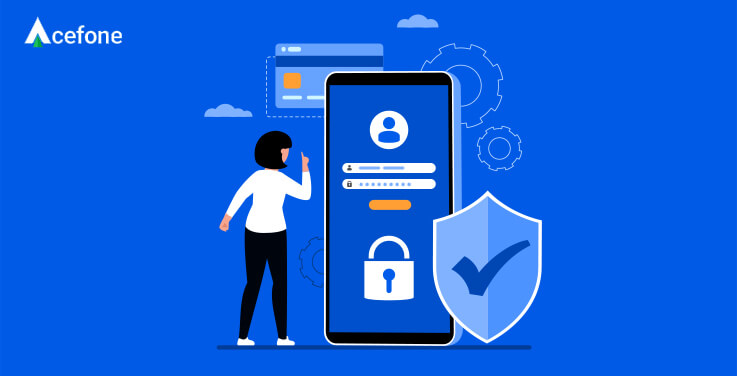VoIP or Voice Over Internet Protocol is a telephony system that plays an important role in taking charge of communication for businesses. One major advantage of VoIP telephony is that it does not need any additional hardware, like telephone lines, to function.
Calls over VoIP only require stable Internet connectivity. This allows businesses to have a reliable and economical business communication system as there is no need for extensive hardware setup.
Furthermore, they support scalability and portability. That is, even if you relocate, you can still operate your business with the same number. You can even expand your business without any hassle. Just contact your VoIP service provider, and they will set up the communication system for you.
With so many advantages, don’t you think it is important to secure this telephony system? This is where the installation of firewalls comes into the picture.
So, what is a firewall and how do firewalls help secure your VoIP Phone Systems? Let us delve deeper.
What is a VoIP firewall?
VoIP systems function over the cloud. As they work with Internet connectivity, they may have vulnerabilities that are prone to cyber threats. With evolving cyber risks, you must secure your IT networks and systems appropriately. One such attempt to secure your best VoIP systems is the implementation of a firewall.
A firewall is installed to monitor incoming and outgoing traffic, based on predefined security rules, in your network. Any suspicious activity or malware detected is blocked automatically and access is denied to it. This way, a firewall protects your VoIP system from malicious and corrupted sources, thereby keeping it secure from cyberattacks.
What are the different types of firewalls?
Firewalls are broadly classified as software, hardware, and a combination of these two types of firewalls.
Software firewalls, as the name suggests, are installed on individual devices. They provide a granular level of monitoring applications on the devices. The administrator can check the type of cloud applications that have been provided access and others that have been blocked.
Hardware firewalls, on the other hand, are installed as physical devices between your VoIP system and the network connection. They are generally installed behind the router. These firewalls act as gateways between the internal networks and the Internet. Physical firewalls monitor network traffic and block malicious sources from accessing the endpoints in the network.
While software firewalls need multiple firewalls for incompatible intranets, hardware firewalls provide security only for the traffic that enters the network and not against insider attackers. Therefore, a combination of both (hardware and software) offers optimal security to your VoIP system and IT networks.
Firewalls are categorized based on their method of operation, which can be of five different types:
-
Packet filtering firewalls
Packet filtering firewalls are the oldest and most basic type of firewalls. They simply check a data packet for their source IP, destination IP, source port, and destination port against predefined authentication rules. They are stateless and therefore cannot check the contents of a data packet.
-
Circuit-level gateways
Circuit-level gateways work at the session layer. They verify active sessions established on Transmission Control Protocol (TCP) connections. These gateways function based on the Open Systems Interconnection (OSI) model. They help determine the security of established connections.
For example, when an internal device like your VoIP phone establishes a connection to another number, the circuit-level gateway establishes a virtual connection with the same number. It also tracks the identity and IP address of both the users.
-
Stateful inspection firewalls
Stateful inspection firewalls keep track of established connections. They are also able to verify the contents of the data packets. These firewalls function by creating a stable table with the source IP, destination IP, source port, and destination port after a connection has been established. Stateful inspection firewalls create their own authentication rules in real-time rather than depending on predefined, hardcoded regulations.
These firewalls are conveniently able to drop data packets that do not have a verified active connection. In the case of your VoIP system, calls from authenticated sources are monitored and allowed. Suspicious activity is monitored appropriately and blocked.
-
Proxy firewalls or application-level gateways
Proxy firewalls work as a mediator between internal and external devices. They work on the cloud application through a proxy device. For example, consider a customer calling your VoIP number. First, the call is connected to the proxy firewall that authenticates the connection. The connection is then forwarded to the internal VoIP telephone device. Similarly, if you initiate a call through the VoIP system, the call is transmitted through the proxy firewall to the destination.
Proxy firewalls keep the identity of the internal and external sources secure by preventing a direct connection between them. Proxy firewalls authenticate the connection along with the content of the data packets against a set of predefined rules. Depending on this outcome, they either permit or discard the data packets.
-
Next-generation firewalls
Next-generation firewalls offer additional security Voip features to your phone systems. They are capable of performing deeper data packet inspections in addition to surface-level inspections. They come with an application awareness feature for traffic and resource analysis. These firewalls block Distributed Denial of Service (DDoS) attacks and block data breach attempts from encrypted applications. They identify the user and user roles and offer a comprehensive approach to cybersecurity. This role-based authentication limits the exposure of critical business information to unwanted sources, thereby protecting it from misuse and leakage.
Why should you consider installing a firewall?
Businesses should consider the need to install firewalls for their VoIP systems for the following reasons:
-
Helps establish a secure connection
A VoIP telephony system is the heart of your business’s communication. You may use it to contact your customers, share information amongst colleagues, and use it for various other inbound and outbound purposes.
With a firewall in place, you ensure that the connections established remain secure. You have the control to check on network vulnerabilities and protect your VoIP system from cyber threats. The firewall blocks unauthorized access to your VoIP system to make sure that connection from and to your VoIP system is always secure.
-
Reduces chances of downtime
When critical business information is compromised or falls prey to cyberattacks, it may bring your business operations to a complete halt. Moreover, it may cause irreparable reputational damage and loss of revenue due to interruption in services.
When you have a state-of-the-art firewall in place, you can check for malicious activities on your cloud network. The firewall alerts your VoIP Phone Service provider, thereby helping you to protect your cloud phone system from suspicious sources. This reduces the chances of a cyberattack, eliminates downtime, and supports uninterrupted services.
-
Showcases your business as a reliable one
Your customers will not hesitate to partner with you and feel free to share their information with you. When your business doesn’t experience frequent downtime, has secure connections, and maintains stability in delivering services, your customers will trust you. They can believe that they are associating with a highly reputable and reliable brand that prioritizes secure network connections. This applies whether you operate a call center vs contact center.
-
Helps earn a competitive edge
Earning the trust of customers is of paramount importance. When you do that, other parameters will eventually fall into place. Your business is projected in a positive light amongst your customer base. This will help you earn a competitive edge thereby attracting more customers.
Wrap up
Though the installation of a firewall for your VoIP system is purely a technical facet, it impacts the functional aspects of your business too. With secure cloud communications solution, you can rest assured that your data will not be compromised. Therefore, regardless of the size of your business, you should consider implementing an updated firewall in your telephony environment to boost the security of your business. Without any cyber threats, you can easily maintain business continuity and stand out in the competition.














